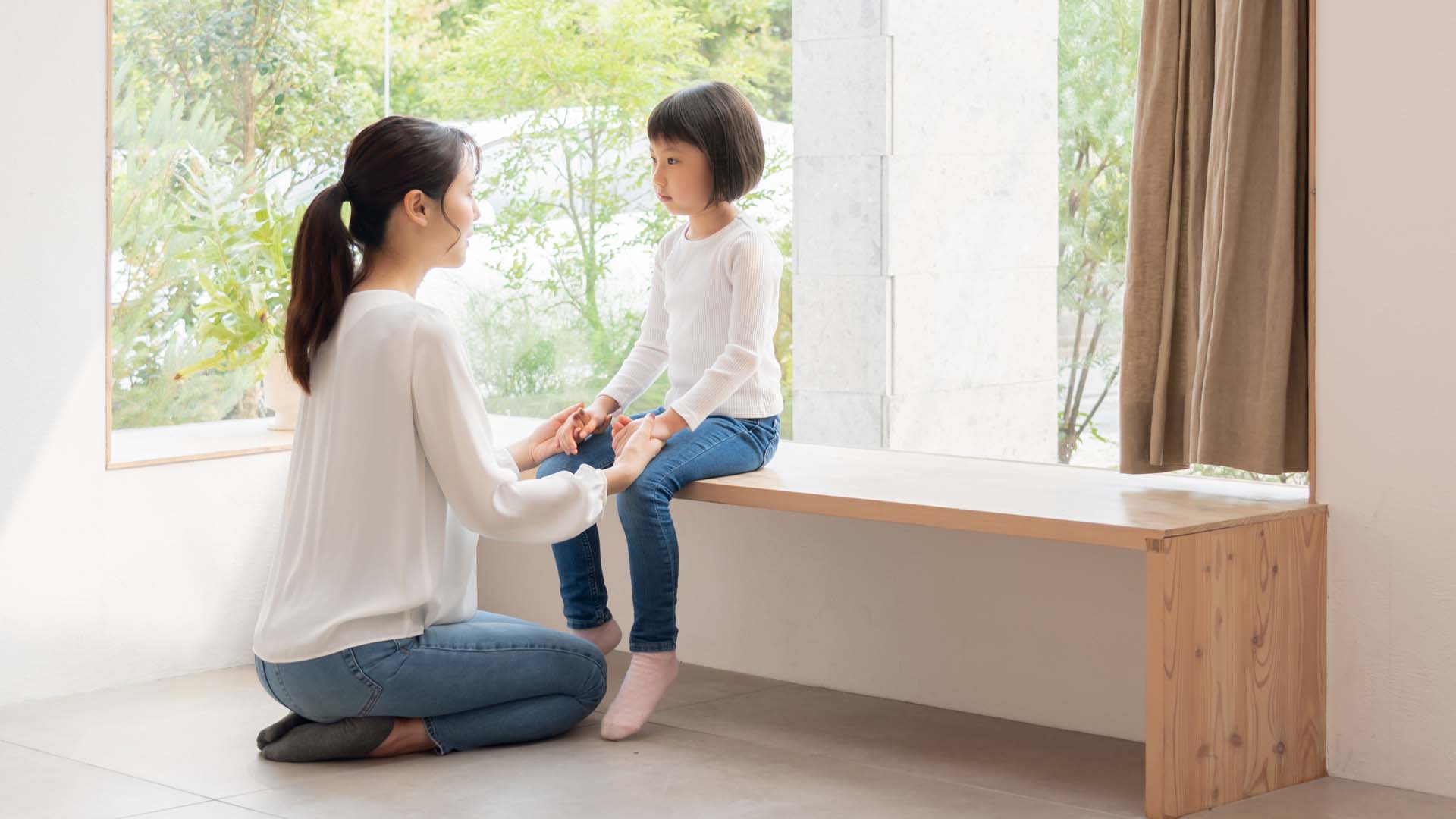
Jesus never had to repent. Repentance is the one thing parents must do that Jesus did not.
Repentance is necessary for our salvation (Isaiah 30:15), like the first gasp of air at our new birth. We breathe lest we die. Yet we all are prone, at different times and in different ways, to resist repentance.
Please hear me right: In our Asian culture, we can be very good at apologising, but only to those who are in authority over us. Many of us are very bad at apologising to those placed under our authority. In fact, we are worse than bad. More often, apologising does not even cross our minds! We feel completely justified and entitled when we make mistakes or commit a wrong. We need to remain dignified and honourable. Keep your pride; save your face.
Normally, I am the kind of person who over-apologises for things. I feel awful when I cause inconvenience in other’s lives. I apologise to “save face”—to maintain people’s perception that I am a “good person”.
My desire to have my children’s esteem tempts me away from repentance before God.
As a mother, however, I struggle to apologise to my children. Because I am in a position of power over my children, admitting I am wrong would cause me to “lose face.” My desire to have my children’s esteem tempts me away from repentance before God.
So, some of us avoid confessing our wrongs and apologising directly. Instead of modelling the repentance we desire of our children, we attempt to make amends if we have wronged our kids. We make peace offerings such as: “Have you eaten?”; “Are you hungry?”; “I made your favourite meal”; or, “Did you sleep well last night?” While these peace offerings may make us feel less awkward, we have neither confessed our sins nor asked for forgiveness.
How Should I Stand Up to Bullies?
Get our latest family resource!
Our latest resource, How Should I Stand Up to Bullies? is now available.Get a copy
Every month, we roll out a new resource for families. Subscribe to our email updates, and be the first to get a copy!
Losing Face, Gaining Christ
Last Saturday, I promised my four boys I would cut their hair. Their bangs were starting to cover their eyes. By the late afternoon, it became clear that the hustle and bustle of our home required my immediate attention, and I didn’t keep my promise to give them their haircuts.
That night, I needed to confess and ask them for their forgiveness. We set aside every Saturday night for family repentance. This discipline prepares our hearts for Sunday morning, when we worship before the Lord. In the hearing of my husband and children, I asked the Lord to forgive me for breaking my word.
Even after years of practice, my flesh still rebelled. I wanted to justify myself. I had every “good” excuse for breaking my promise and not cutting their hair. The words “please forgive me” were lodged in my throat. Not fulfilling my words to my children didn’t feel like a sin to me.
The Father is searching for worshippers who are willing to lose face for His name’s sake.
Confession of my sin feels like a defeat in which I lose respectability in my children’s eyes. These feelings are woven into the fabric of my consciousness. The thought of revealing my brokenness, and displaying a contrite heart before my sons, crushes my pride.
Jesus never repented, because he never sinned. Mature Christians are called to be visible examples of how one might confess sins and seek forgiveness. We have the privilege to teach little ones to walk the road of repentance. In this way, our wayward souls are God’s vessels of grace.
The Father is searching for worshippers who are willing to lose face for His name’s sake. Whoever saves his face will lose it, but whoever loses his face for the sake of Christ will bear the likeness of Christ.
Repentance as a Discipline
All of life is repentance, a steep climb up Mount Zion. We climb against the gravity of sin, the weight of our flesh, and the sinful desires of our will. Even as I confess one sin, I am reminded of so many others.
But every step taken is another step closer to the summit yet unseen. God’s truth and covenant faithfulness hold us fast from the precipice of death.
Repentance, however, requires discipline. In our home, we are cultivating attitudes that hold us to God’s mercy:
1. Hate our own sin.
“Love the sinner; hate our own sin.” Pastor’s wife and author Rosaria Butterfield changed my life with this sentence. Apart from Christ, my own evil is my undoing.
Do I hate my own sin more than I hate my children’s sin, or my husband’s sin? Am I quick to point out the wrongs of others and excuse my own? After all, I am a soul well acquainted with self-righteousness and all forms of self-glorifying tendencies.
Do I show my children my fight against self-pity and selfishness? Am I willing to ask my children to pray for me when I struggle to obey Christ?
2. Never talk about, always to.
This was a rule in missionary Amy Carmichael’s home. She was a mother to hundreds and hundreds of rescued orphans from Hindu temples in India.
In our home, we work on not speaking about other people’s sins. Instead, we seek ways to speak face to face.
When we correct our children, we speak in gentleness: “We are for you, not against you.” When brothers correct each other, we ask them to speak out of love, without accusation or anger.
Parents, brothers, and sisters should not tattle about each other’s wrongs. When possible, I ask my children to give only accounts of the wrong they have done, not what their siblings have done.
3. Keep a capacious heart.
One who is forgiven much loves much. A broken and contrite heart is remade for greater capacities to love. A capacious heart forgives readily and keeps no record of wrong.
A capacious heart has nothing to prove and is quick to repent—without excuses or blame-shifting.
I often pray, “Lord, help me not be a puddle. Create in me a heart like the ocean.” A puddle-like heart is easily offended and embittered. An ocean-like heart covers a multitude of wrongs. A capacious heart has nothing to prove and is quick to repent—without excuses or blame-shifting.
Repent in Sorrow, Joy Will Follow
“Repent, then, and turn to God,
so that your sins may be wiped out,
that times of refreshing may come
from the Lord, and that he may
send the Messiah, who has been
appointed for you—even Jesus.”
—Acts 3:19–20
Breathe in; breathe out—sorrow and joy are the gentle rising and falling of a repenting soul. We lament over our sin and the suffering in the world caused by our wickedness. We grieve before our Lord, but not without hope. As 2 Corinthians 7:10 says: “Godly sorrow brings repentance that leads to salvation and leaves no regret.”
When sin assails us, it is good for our children to know that we, too, need to cry out to God for help.
Our cultural or family heritage may not lend itself to lamentation. Our fear of “losing face” may get in the way of lamenting. Sackcloth and ashes may feel undignified.
But when sin assails us, it is good for our children to know that we, too, need to cry out to God for help. We do not explain or excuse the sin away.
The only face we need to keep is the face of Christ.
Every Saturday night, we come together to repent and pray. Grace falls like rain over our parched and weary family. In repentance, joy triumphed over shame and self-pity. The Lord put a new song in our mouths.
A forgiven family is a family who is well-loved and loves well. A repenting household is a rejoicing household. The only face we need to keep is the face of Christ. Behold the face of Christ when we confess and forgive. God turns our laments into praise; He puts our chaos into order; He takes our shame and covers us in glory; He crushes death and brings us life.
The original article, “What Parents Can Do That Jesus Can’t”, was originally published on Desiring God. Adapted with permission.




